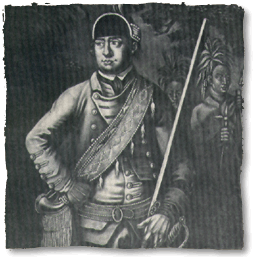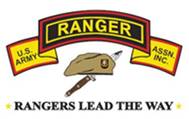|
The U.S. Army Ranger Association is the oldest organization currently in existence that supports members of the Ranger community regardless of the conflict in which they served or the unit to which they were assigned. The Association has been asked to weigh in on the question of who qualifies to use the title U.S. Army Ranger. Those who study Ranger history will know that this until-now good natured barracks debate has flared in one form or another for at least seventy years. The short answer to this question is that anyone who graduated from the U.S. Army's Ranger School or who served in a Ranger-designated unit qualifies. These qualifications have been enshrined, albeit in a bit more detail, within our bylaws for decades and are consistent with the stance taken by the Department of the Army. Why Has USARA Been Asked to Address This Issue?On January 23, 2021, a writer named Roger Sollenberger published an article on a news and opinion website called Salon in which he called into question the right of a politician who graduated from the Army's Ranger School to use the title "U.S. Army Ranger." The gist of his argument is that Ranger School graduates are only Ranger qualified, and have not earned the right to use the title unless they serve in the U.S. Army's only currently designated Ranger unit: the 75th Ranger Regiment. Mr. Sollenberger's piece is the third article written in the last six months that the Association has been asked to address on this subject. The other two were written by a gentleman by the name of Glenn Kessler and published in the Washington Post. It appears that neither author served in the military, let alone earned a Ranger Tab or served in a Ranger designated unit. The question of what qualifies an individual to use the title Army Ranger has been the source of a longstanding intra-service rivalry. It is a debate that likely extends at least as far back as March 1, 1952, which is the date upon which the U.S. Army Ranger School graduated its first class. The efforts by Messrs. Kessler and Sollenberger to export this intra-service rivalry belie a failure to understand Ranger history on both of their parts. What Does Ranger History Tell Us?.gif) As noted above, the debate most likely originates with the formation of the U.S. Army Ranger School. On March 1, 1952, the Ranger Department graduated its first class from the newly constituted Ranger School at Ft. Benning. Graduates of the Ranger School were assigned to primarily infantry units throughout the Army. At that time, the military did not maintain standing operational Ranger units, the last of which that fought in the Korean War having been inactivated in 1951. In other words, the only “Army Rangers” at that time were individuals who graduated from the schoolhouse and who were not serving in Ranger-designated units. Graduates of the present-day Ranger School continue to serve in units throughout the Army, primarily but not exclusively in combat arms positions. Although the school is not a part of the 75th Ranger Regiment, the Regiment’s officers and non-commissioned officers are required to graduate from it. In other words, achievement of the Ranger Tab is tantamount to a prerequisite for most leadership positions within the Regiment.
The Regiment’s personnel perform what many currently consider to be Ranger-type missions. However, much has been written about the fact that since about 2006, the Regiment’s repertoire of capabilities has greatly expanded to include mission sets and skills required for other types of special operations missions that would not by any historical means be considered "Ranger-type" in nature. At the same time, there are many other units within the U.S. Army that continue to perform what have historically been considered to be Ranger missions. Rangers are taught -- both in the Regiment as well in Ranger School -- that the term “Ranger” came into common usage during the early colonial period, when irregular troops ranged the frontier in small groups in an effort to protect colonial settlements. This overlap in mission type and purpose is one, among many, of the reasons why the LRRP units that served in Vietnam were eventually folded into the 75th Infantry Regiment (Ranger), the precursor to the 75th Ranger Regiment. That the Ranger School continues to use small unit tactics in the setting of the historic Ranger missions to teach leadership is intended to, and does, enhance the ability of the units within the Army to successfully prosecute such missions. Application of Ranger History to the Current Debate It is disappointing that Messrs. Kessler and Sollenberger either did not bother to conduct this research before publishing their articles, or did so and proceeded to publish the articles in spite of this history. Their allegations do a great disservice to those Rangers who honorably served at times when the no Ranger-designated units existed. Similarly, they disrespect the legacies of individuals who served in units that were not Ranger designated by the Army during service, but later included within the Ranger lineage by the Department of Defense. Certainly, no one would dare tell a member of the fabled Merrill's Marauders that he is not a Ranger, nor would they consider telling an individual who served in the LRRP units of Vietnam that he must now disavow the title of U.S. Army Ranger. Neither author can lay claim the title Ranger under any circumstances, yet both seek to use this debate to drive a wedge between members of our community for what appear to be political purposes. USARA's long standing mission remains to strengthen relationships among all US Army Rangers, not just those who graduated from the school, and not just those who were assigned to a particular unit. We support the Ranger community and welcome all who have honorably served with the honored affiliation of volunteering for Ranger service. For seven decades this rivalry has served as fodder for discussion over beers, and not much more than that. The fact that Rangers may engage in discourse and debate with each other on the one hand, and yet stand side-by-side with each other to close with and destroy the enemy, on the other hand, is one of the greatest qualities of those who comprise the Ranger community.
|

 By many standards, the 75th Ranger Regiment is a relatively new unit within the US Army, having been designated in 1986. As indicated above, the U.S. Army has not historically maintained standing Ranger units. Rather, Rangers units were formed to meet the needs of the Army during specific conflicts, and then disbanded once those needs were no longer perceived to continue. Consider, for example, the Ranger units formed during the Revolutionary War, Civil War, World War II, Korean War, and Vietnam War -- each of which were formed for all or part of the specific conflict and then subsequently disbanded. It was not until 1974, that the Army activated a standing Ranger element -- the 1st Ranger Battalion. Since then, the Army has activated four additional battalions (2nd, 3rd, RSTB, and MI) as well as a Regimental Headquarters to command them.
By many standards, the 75th Ranger Regiment is a relatively new unit within the US Army, having been designated in 1986. As indicated above, the U.S. Army has not historically maintained standing Ranger units. Rather, Rangers units were formed to meet the needs of the Army during specific conflicts, and then disbanded once those needs were no longer perceived to continue. Consider, for example, the Ranger units formed during the Revolutionary War, Civil War, World War II, Korean War, and Vietnam War -- each of which were formed for all or part of the specific conflict and then subsequently disbanded. It was not until 1974, that the Army activated a standing Ranger element -- the 1st Ranger Battalion. Since then, the Army has activated four additional battalions (2nd, 3rd, RSTB, and MI) as well as a Regimental Headquarters to command them.